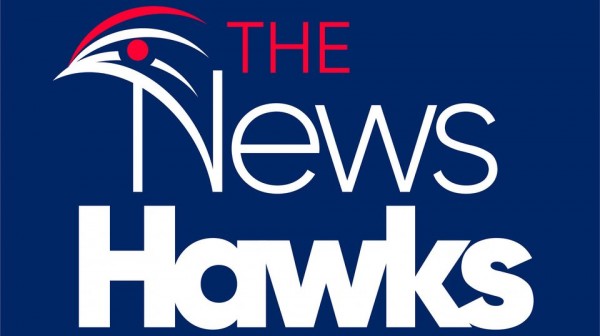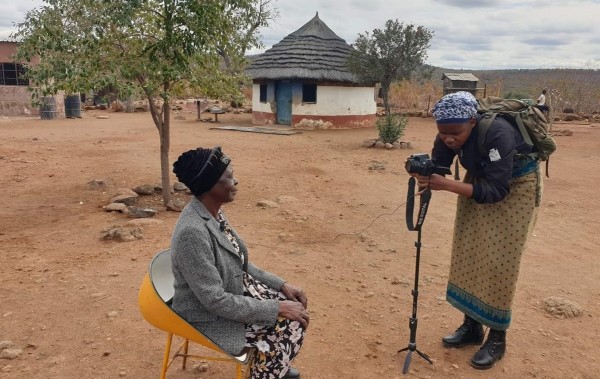His Excellency President Robert Mugabe
Office of the President
Causeway, Harare
Zimbabwe
Fax: +263 4 728 799 / 708 820 / 734 644
Vienna, 26 June 2001
Your Excellency,
The International Press Institute (IPI), the global network of editors and media executives, is writing to express its concern over recent statements made by government ministers regarding the passage of the Freedom of Information Bill. Statements that appear to show that the Zimbabwean government has decided not to consult interested parties prior to the enactment of the bill.
According to the information provided to IPI, a number of government ministers have made comments on the progress of the Freedom of Information Bill. In a recent interview with the Zimbabwe Independent, minister of justice and leader of the house, Patrick Chinamasa, was quoted as saying, “Hopefully the Bill will be taken to parliament during the next session for I would like to believe that the first draft of the Bill is complete”. The deputy attorney general, Bharat Patel, has also stated, “I cannot say much about the contents of the Bill but it does contain a section dealing with the rights and privileges of journalists and the code of conduct.”
In a separate interview with the Zimbabwe Independent, the deputy permanent secretary in the department of information and publicity, Munyaradzi Hwengwere, refused to comment on the specific contents of the Bill, arguing that it was too early to do so as the Bill had not been tabled before parliament. However, Hwengwere did say, “the Bill will, among other things, seek to licence journalists and set up a code of ethics which all practising journalists have to abide by. It will also cover aspects of information dissemination by new media as well as making it easier for information to flow from government to media and from private sector to government.”
Between 7 and 11 May, IPI, along with three other press freedom organisations, visited Zimbabwe and met with government officials, journalists and other interested parties in order to ascertain the true state of press freedom in Zimbabwe. On 9 May, the delegation met with Professor Jonathan Moyo, minister of state for information and publicity. During the meeting, Professor Moyo made a number of comments regarding the Freedom of Information Bill.
Speaking of the Freedom of Information Bill, Professor Moyo said there is a need to assist the media and the legislative process is one of the elements of Zimbabwean democracy. In reply to a question from one of the delegates concerning the possibility of a period of consultation, Professor Moyo made the following comment, “Consultation will be out of the question. It is the role of parliament to pass law, groups can apply pressure through their constituency MP’s. They can then table amendments.”
Regarding the comments of Professor Moyo and other government officials, IPI believes that the Zimbabwean government is misguided in its approach to the creation of a Freedom of Information Bill. Crucial to the existence of a genuine Freedom of Information Bill is the desire to create a transparent and open government; however, by seeking to shroud the Bill in mystery and by failing to consult interested parties, the government of Zimbabwe is actively undermining the very notion of freedom of information even before the Bill is enacted. In addition, the success of such a Bill is determined by the government’s willingness to publicise its usage; by failing to provide details of the Bill, prior to its passage through parliament, IPI has considerable, doubts whether the government has a genuine interest in allowing public access to information.
In the opinion of IPI, a consultation process is an essential prerequisite to the formulation of a Freedom of Information Bill. With this in mind, IPI feels strongly that the government should have issued the proposed legislation as a consultation paper and invited comments from all interested parties before moving to the parliamentary stage. The dismissal of the importance of consultation is a failure to fully appreciate the “inclusive” nature of government which is now the benchmark of all modern democracies. Indeed, by initiating a consultation stage, the government would have been following the procedures of its neighbour South Africa. Prior to the enactment of the Promotion of Access to Information legislation in January 2000, the government of South Africa sought comments from all interested parties when the proposed legislation was entitled the Open Democracy Bill.
Regarding the other elements that are said to form a part of the Bill, IPI has grave doubts that these are compatible with the notion of freedom of information. In previous statements to the media, government ministers have stated that rules on the accreditation of journalists, ethics and a media commission would also be included in the Bill.
Without the draft legislation to peruse, IPI has been left to examine the many comments made by government ministers on these sections. This has left IPI with the overwhelming impression that the rules on journalists’ accreditation, journalists’ ethics and a legislated media commission will all be used to restrict the media. Therefore, the Bill will be left in the curious position of, on the one hand, upholding and affirming freedom of information, while, on the other, actively suppressing those who work hardest to provide information in Zimbabwean society. A position that is surely untenable for a freedom of information bill.
In consequence, IPI calls on Your Excellency to halt the passage of the Bill, to make the Bill freely available to those who wish to review it and institute a consultation period, thus allowing all interested parties to comment on the Bill. By taking this path, IPI believes that you will be fulfilling the essential requirements for drafting a freedom of information bill.
We thank you for your attention.
Best regards,
Johann P. Fritz
Director


